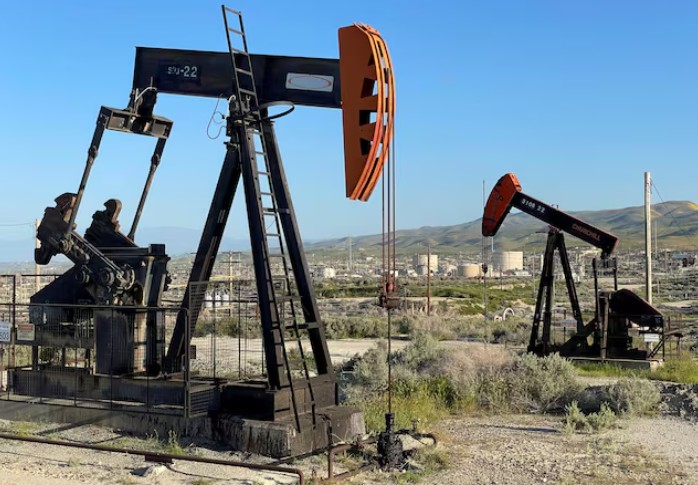By Satoshi SUGIYAMA
US President Donald Trump urged his administration on Monday to boost drilling rates and market players to keep oil prices down amid fears that the aftermath of the US attacks on Iran’s nuclear facilities could cause energy prices to spike.
Trump addressed the US Department of Energy in a post on his Truth Social platform encouraging it to “drill, baby, drill” and saying, “I mean now,” despite no major oil disruptions after the bombings.
In another post on the platform, Trump said in all caps: “Everyone, keep oil prices down, I’m watching! You’re playing into the hands of the enemy, don’t do it.”
US Energy Secretary Chris Wright responded, “We’re on it!” to the drilling message, in a post on X.
It was not immediately clear what the DOE could do to boost drilling in the world’s top oil and gas producer, where drilling decisions are made by private companies. Output already hit record highs during the previous administration of President Joe Biden.
The DOE did not immediately respond to a question on Wright’s comment.
Global benchmark Brent oil prices oscillated on Monday, as oil and gas transit continued on tankers from the Middle East after US air strikes against Iran. It jumped nearly 6 percent to a five-month high early in the session, then was down 7.3 percent in afternoon trading after Iran focused its retaliationon a US airbase in Qatar but did not disrupt the oil flowin the region.
Wright said during an interview on CNBC that he was not surprised that oil prices fell on Monday.
“I would not expect much movement of oil upwards from the tensions that are going on,” he said. “We’re in such a good position today, this American energy dominance that President Trump ran on.”
If severe interruptions in oil supplies develop, such as the remote possibility that Iran restricts shipping in the Strait of Hormuz, the United States could tap the Strategic Petroleum Reserve, the world’s largest emergency crude oil stash. Wright also has the power to conduct test sales or exchanges, limited to 5 million barrels, from the reserve, which currently holds about 403 million barrels.





